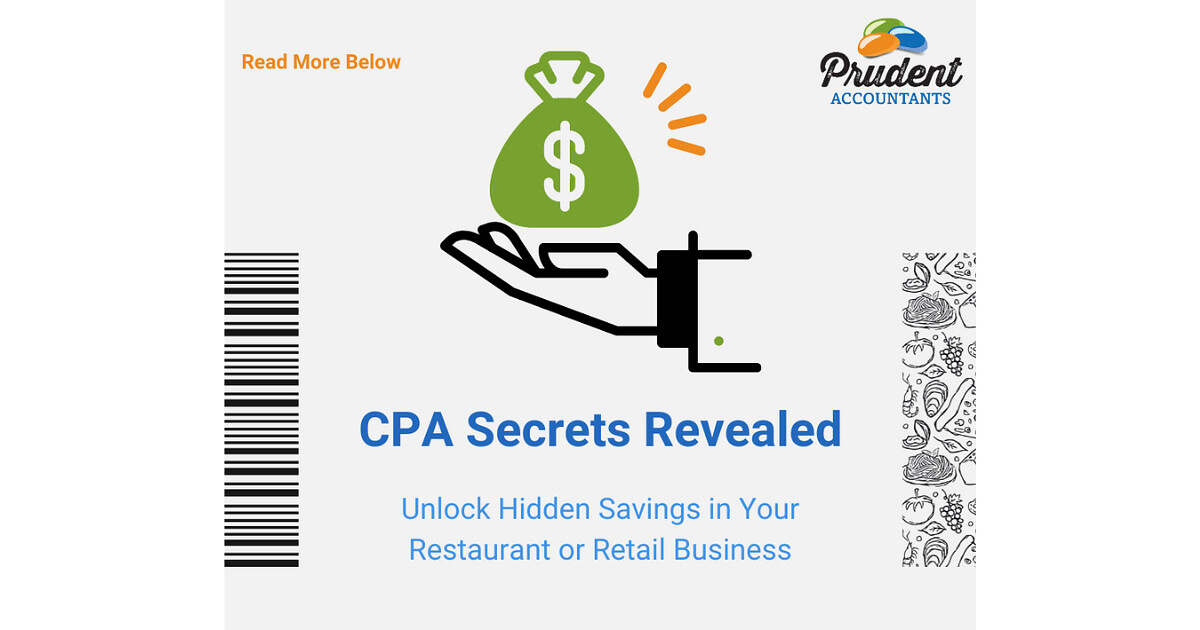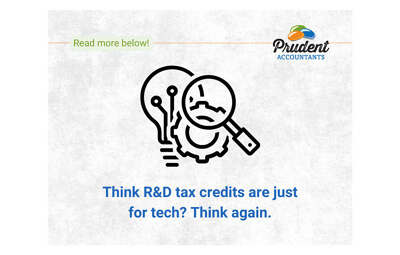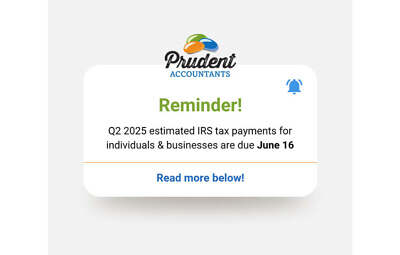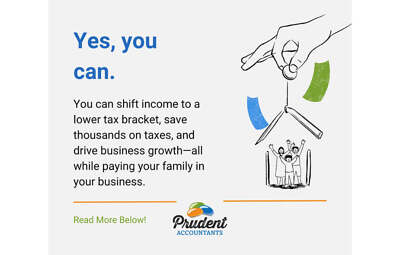How CPAs Can Help Restaurants and Retailers Save Thousands: A Must-Read Guide for Business Owners

Running a restaurant or retail business is no easy feat. With razor-thin profit margins, fluctuating costs, and complex tax requirements, it’s essential to manage every dollar effectively. This is where a Certified Public Accountant (CPA) can be a game-changer. CPAs bring a level of expertise and strategic thinking that can help your business not only survive but thrive in today’s competitive environment. In this guide, we’ll explore how a CPA can assist restaurants and retail businesses in saving money, optimizing operations, and ensuring long-term financial stability.
Understanding the Financial Challenges of Restaurants and Retailers
Restaurants and retail businesses operate in industries with unique financial challenges. For restaurants, food costs, labor, and overhead expenses like rent and utilities are significant. In retail, inventory management, supply chain logistics, and fluctuating customer demand can create financial strain. Moreover, both industries often face seasonal variations in sales, which complicates cash flow management.
With these challenges, business owners are often so caught up in day-to-day operations that they struggle to find time for strategic financial planning. This is where partnering with a CPA can make all the difference. CPAs provide more than just bookkeeping; they offer insights that can help businesses cut costs, optimize tax strategies, and make informed financial decisions.
The Role of a CPA in Cost Management
Identifying Cost-Saving Opportunities
One of the primary ways a CPA can help your business save money is by identifying cost-saving opportunities. Through detailed financial analysis, a CPA can uncover inefficiencies that might not be immediately obvious to the business owner. For example, in a restaurant, a CPA might analyze food costs and find that better inventory management could reduce waste and lower expenses. Similarly, they might suggest negotiating better terms with suppliers or purchasing in bulk to take advantage of discounts.
In retail, a CPA can assess your cost of goods sold (COGS) and recommend strategies to reduce costs, such as optimizing inventory levels to prevent overstocking or stockouts. They can also help you evaluate vendor contracts to ensure you’re getting the best possible deals, and even assist in renegotiating terms to improve your bottom line.
Another area where CPAs can add value is by optimizing payroll costs. For both restaurants and retail businesses, labor is often one of the most significant expenses. A CPA can analyze your labor costs relative to your sales and suggest adjustments in scheduling, staffing levels, or even the implementation of labor-saving technologies. For instance, using scheduling software to optimize shift patterns can reduce overtime expenses without compromising service quality.
Optimizing Tax Strategies
Taxation is another area where CPAs can provide significant cost savings. Both the restaurant and retail industries have access to various tax deductions, credits, and incentives, but navigating these can be complex. A CPA’s expertise ensures that your business takes full advantage of these opportunities while remaining compliant with tax laws.
For example, restaurants can often deduct expenses related to food and beverage purchases, employee meals, and even certain marketing expenses. Retailers, on the other hand, may be eligible for deductions related to inventory purchases, transportation costs, and even the depreciation of store fixtures and equipment.
Additionally, CPAs can help identify tax credits specific to your industry. For instance, restaurants may qualify for the FICA tip credit, which allows employers to claim a tax credit for the Social Security and Medicare taxes paid on employee tips. Retailers might benefit from the Work Opportunity Tax Credit (WOTC) if they hire employees from certain target groups, such as veterans or long-term unemployed individuals.
Moreover, a CPA can assist in tax planning throughout the year, not just during tax season. By developing a proactive tax strategy, a CPA ensures that your business maximizes deductions and credits while minimizing tax liabilities. This ongoing planning helps avoid surprises at tax time and keeps more money in your business.
Enhancing Cash Flow and Financial Stability
Cash Flow Management
For both restaurants and retail businesses, cash flow is the lifeblood of operations. Managing cash flow effectively can mean the difference between a thriving business and one that struggles to stay afloat. This is especially true for businesses with seasonal fluctuations in sales, such as restaurants that experience a dip in business during the winter months or retailers who rely heavily on holiday sales.
A CPA can help manage cash flow by developing accurate cash flow forecasts that anticipate seasonal variations and other factors that impact revenue. These forecasts allow you to plan for slow periods by setting aside reserves or arranging short-term financing if necessary.
In addition to forecasting, a CPA can assist with budgeting to ensure that your expenses align with your projected income. This might involve adjusting spending during slower months or finding ways to spread out expenses more evenly throughout the year. For example, a CPA might recommend negotiating with suppliers to extend payment terms, thus easing cash flow during leaner times.
Effective cash flow management also involves managing accounts receivable and payable. For restaurants, this might mean speeding up the collection of customer payments or working with vendors to delay payments without incurring penalties. Retailers might benefit from more aggressive collection practices or offering early payment discounts to encourage faster customer payments.
Overall, by helping you understand and manage your cash flow, a CPA ensures that your business remains financially stable and can weather unexpected challenges.
Financial Reporting and Analysis
Accurate financial reporting is critical for making informed business decisions. Regular financial reports, such as income statements, balance sheets, and cash flow statements, provide a clear picture of your business’s financial health. However, these reports are only as useful as the analysis that accompanies them.
A CPA doesn’t just prepare financial reports; they also analyze the data to provide insights that guide better decision-making. For example, by analyzing your income statement, a CPA might identify trends in your sales or expenses that could indicate a need for strategic adjustments. They might notice that your food costs have been steadily increasing and suggest a review of your supplier contracts or menu pricing.
Similarly, a CPA can use your balance sheet to assess your business’s financial stability, looking at factors like debt levels, asset liquidity, and working capital. If your business is carrying too much debt, a CPA might recommend strategies to reduce it, such as refinancing loans or selling off underperforming assets.
Key performance indicators (KPIs) are another tool that CPAs use to track your business’s financial health. KPIs like gross profit margin, net profit margin, and return on assets can provide valuable insights into your business’s performance and help you identify areas for improvement.
By providing regular financial reporting and analysis, a CPA helps ensure that you have the information you need to make sound financial decisions and keep your business on a path to success.
Leveraging Technology and Automation
Implementing Financial Technology (Fintech)
In today’s fast-paced business environment, leveraging technology is essential for staying competitive. CPAs are well-versed in financial technology (fintech) solutions that can streamline your operations, reduce errors, and save time.
One of the most impactful areas where fintech can be applied is bookkeeping. Traditional bookkeeping methods are time-consuming and prone to errors. By implementing cloud-based accounting software, a CPA can automate many of the routine tasks involved in bookkeeping, such as data entry, reconciliations, and report generation. This not only saves time but also ensures that your financial records are accurate and up-to-date.
For restaurants, fintech solutions can also streamline inventory management. By integrating your point-of-sale (POS) system with inventory management software, you can automate the tracking of inventory levels, reducing the risk of stockouts or overstocking. This not only saves money but also improves customer satisfaction by ensuring that popular items are always in stock.
Retailers can benefit from fintech solutions that enhance supply chain management. For example, software that tracks inventory levels in real-time can help you optimize your ordering process, ensuring that you always have the right amount of stock on hand. This reduces the need for costly last-minute orders and minimizes the risk of holding excess inventory that may need to be discounted or written off.
Real-Time Financial Insights
One of the biggest advantages of fintech is the ability to access real-time financial insights. In the past, business owners had to wait until the end of the month or quarter to receive financial reports, which meant that critical decisions were often made based on outdated information.
Today, cloud-based accounting software provides real-time access to financial data, allowing you to monitor your business’s performance as it happens. This real-time visibility is especially valuable in the fast-paced restaurant and retail industries, where conditions can change rapidly.
For example, if a restaurant’s sales suddenly decline, the owner can immediately check their financial dashboard to see if the problem is related to food costs, labor costs, or another factor. Similarly, a retailer can use real-time data to adjust pricing or promotions in response to changes in customer demand.
CPAs can help you set up and customize these fintech solutions to ensure that you’re getting the most out of your financial data. They can also provide ongoing support and training to ensure that you and your team know how to use the software effectively.
Strategic Planning and Growth Support
Long-Term Financial Planning
While day-to-day financial management is essential, it’s equally important to think about the long-term future of your business. CPAs play a crucial role in helping businesses develop and implement long-term financial plans that support growth and sustainability.
For restaurants and retail businesses, long-term planning might involve expanding to new locations, investing in new technology, or even considering a merger or acquisition. A CPA can provide the financial analysis needed to evaluate these opportunities and assess their potential impact on your business.
For example, if you’re considering opening a second location, a CPA can help you analyze the costs involved, forecast the potential revenue, and assess the impact on your existing operations. They can also assist in securing financing for the expansion, whether through loans, investors, or other funding sources.
In addition to expansion, long-term financial planning might also involve succession planning. Many business owners fail to
plan for what will happen to their business when they retire or step down. A CPA can help you develop a succession plan that ensures a smooth transition and preserves the value of your business.
Budgeting and Forecasting for Growth
Budgeting and forecasting are essential components of long-term financial planning. By setting realistic budgets and forecasts, you can ensure that your business is on track to meet its financial goals.
A CPA can assist in developing budgets that align with your business’s growth objectives. This might involve creating a detailed budget for a specific project, such as a renovation or marketing campaign, or developing an annual budget that covers all aspects of your operations.
Forecasting is equally important, as it allows you to anticipate future financial needs and adjust your plans accordingly. For example, a CPA might forecast your cash flow for the next year and identify potential shortfalls during slower months. With this information, you can take proactive steps to address the issue, such as securing a line of credit or cutting costs.
By helping you develop and manage budgets and forecasts, a CPA ensures that your business is prepared for the future and positioned for growth.
Why Choose Prudent Accountants?
Now that you understand the many ways a CPA can help your restaurant or retail business save money and achieve financial stability, it’s time to consider who you want to partner with. Prudent Accountants offers a range of services tailored specifically to the needs of the restaurant and retail industries.
Our services include:
- Bookkeeping and Financial Reporting: We handle all your bookkeeping needs, from bank reconciliations to financial reporting, ensuring that your financial records are accurate and up-to-date.
- Tax Planning and Compliance: Our tax professionals stay up-to-date with the latest tax laws and regulations, helping you develop tax strategies that maximize deductions and minimize liabilities.
- Cash Flow Management: We assist in managing your cash flow, ensuring that you have the funds you need to operate your business smoothly, even during slower periods.
- Budgeting and Forecasting: Our team helps you develop realistic budgets and forecasts that support your growth objectives and keep your business on track.
- Payroll Processing: We offer comprehensive payroll processing services, ensuring that your employees are paid accurately and on time while maintaining compliance with labor laws.
At Prudent Accountants, we pride ourselves on providing personalized service tailored to the unique needs of your business. Our goal is to help you achieve financial success, whether you’re running a small café, a large restaurant chain, or a thriving retail store.
Closing Thoughts
Managing a restaurant or retail business is challenging, but with the right financial guidance, it’s possible to overcome these challenges and achieve lasting success. A CPA can provide the expertise and insights you need to save money, optimize your operations, and plan for the future.
If you’re ready to take your business to the next level, consider partnering with Prudent Accountants. With our comprehensive range of services and industry-specific expertise, we can help you navigate the complexities of financial management and achieve your business goals. Contact us today for a consultation. Our team is here to provide the financial guidance and support you need to succeed.








